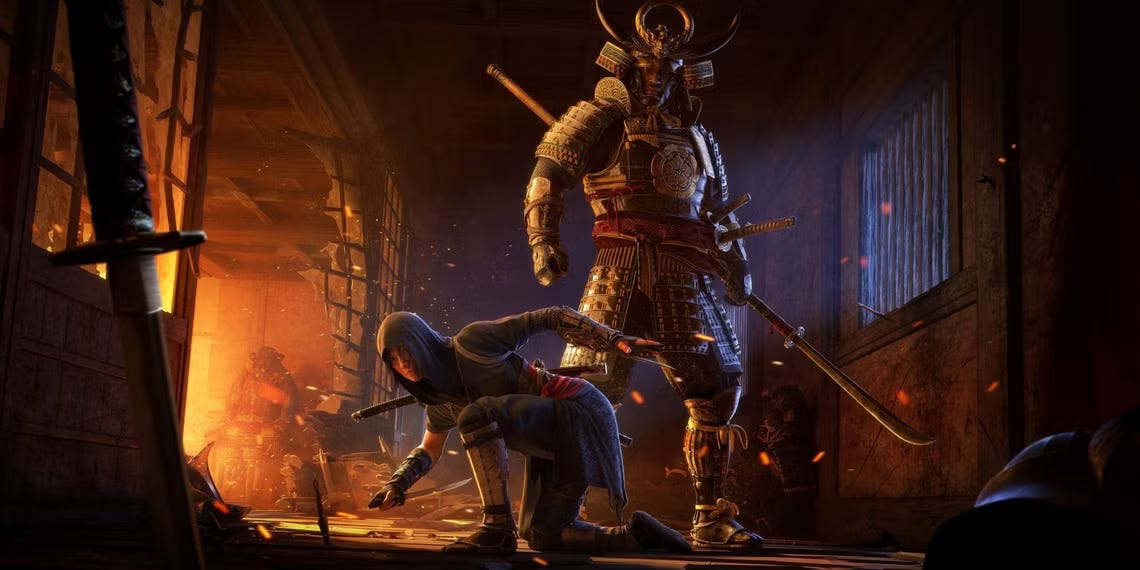Assassin's Creed Shadows Creative Director Talks Making the Open-World Setting of Japan
A Dual Protagonist Journey Into Feudal Japan
Japan has been one of the most anticipated settings for the Assassin's Creed franchise, and Assassin's Creed Shadows will finally deliver that much-requested experience. However, the game isn't just about stepping into the boots of a typical Assassin or Shinobi. Instead, players will take on the roles of two unique protagonists: samurai Yasuke and shinobi Naoe. This dual-character approach offers a richer, multi-layered perspective of Japan, blending the traditions of both the noble and the stealthy warrior classes.
Game Rant recently sat down with Jonathan Dumont, the creative director of Assassin's Creed Shadows, to discuss the game's development, its open-world design, and the exciting new directions the game takes, including the rich, immersive world of feudal Japan.
Creative Direction of Assassin's Creed Shadows
Q: As the creative director for such a massive game, what’s a typical day like for you while developing Assassin's Creed Shadows?
A: It’s been a whirlwind! The game’s been a challenge to build because we’re upgrading a lot of the engine while also pushing the concept forward. We have two protagonists who offer vastly different experiences and mechanics, which adds complexity. We're balancing historical authenticity with creative fiction, ensuring we don't stray too far from the past while introducing a fully dynamic world. My role involves guiding the team and sometimes stepping in to help wherever needed—whether that’s story-writing or overseeing the execution of new features.
Q: Ubisoft Quebec has often used multiple protagonists, like in Syndicate and Odyssey. Why continue this trend with Shadows?
A: It’s not something we plan for from the start, but it evolves naturally with the game. For Syndicate, the Frye twins allowed us to play with dialogue and tone. In Odyssey, we leaned into RPG elements with character choice. For Shadows, we had two distinct archetypes—a samurai and a shinobi—which we felt needed separate characters to capture their essence fully. This dual-protagonist structure just made sense for this narrative.
Q: Shadows has many innovative features, like changing seasons, customizable hideouts, and historical characters as protagonists. Were these ideas part of the initial concept?
A: Every Assassin's Creed game tries to introduce something new, and Shadows is no different. The changing seasons were inspired by Japan’s distinct weather cycles, which are deeply embedded in their culture. With next-gen technology, we could create a more dynamic world, with changing environments that feel alive. We wanted players to experience Japan through the seasons, from snowy landscapes in winter to the vibrant beauty of spring. It’s about making the world feel lived in and constantly evolving.
Exploring the World of Japan in AC Shadows
Q: How does this open world compare to Assassin’s Creed Odyssey?
A: The major difference is time. The time of day greatly influences gameplay in Shadows. Naoe is stealthier and more powerful at night, while Yasuke is more dominant during the day. We’ve designed the world to have a greater impact on gameplay, making time of day feel more consequential. Also, the scale of the world is larger, which was inspired by the vast castles and steep mountains we saw in Japan.
Q: What impressed you the most during your trip to Japan, and how did it influence the game?
A: The mountains were breathtaking—they were far steeper and more imposing than we anticipated. We had to adjust the game to reflect that. Japan’s landscape is dense and rugged, and we wanted to capture that sense of impenetrable nature in the game. Also, seeing castles perched on mountaintops left a huge impression on me. It was a strategic advantage back in the day, and we’ve recreated that feeling in Shadows.
A: Another surprising aspect was how much Japanese architecture harmonizes with nature. Whether it’s temples, shrines, or castles, there’s a deep respect for the environment. We’ve tried to replicate that in the game, ensuring that the built world feels integrated into the natural surroundings.
Q: What’s one interesting fact from your research into Japanese history that stood out to you?
A: One of the most surprising things was learning about the practice of hostage-taking between clans during the Warring States period. A clan might send a child to live in an enemy’s castle as leverage. It was a brutal but effective form of psychological warfare. And there’s also a fascinating book by Luís Fróis, a Portuguese missionary, who observed the cultural differences between Japan and Europe. It’s full of insightful details about Japan’s feudal society that influenced how we built the game’s world.
Assassin's Creed Shadows is shaping up to be one of the franchise's most ambitious and unique entries, combining historical fidelity with innovative gameplay mechanics. With dual protagonists, dynamic environments, and a rich historical setting, it promises to offer an unforgettable journey into feudal Japan.


